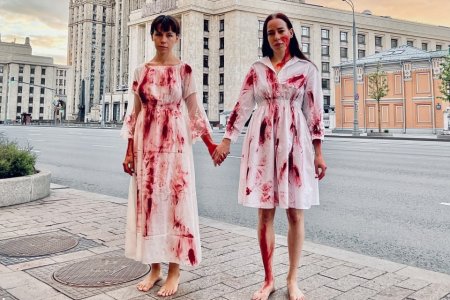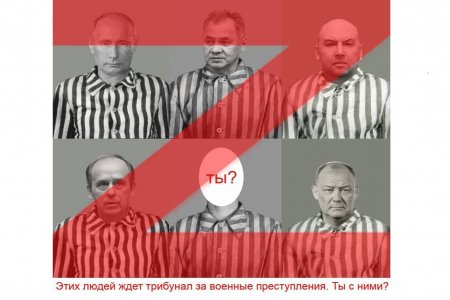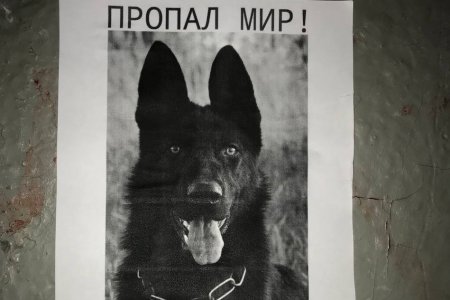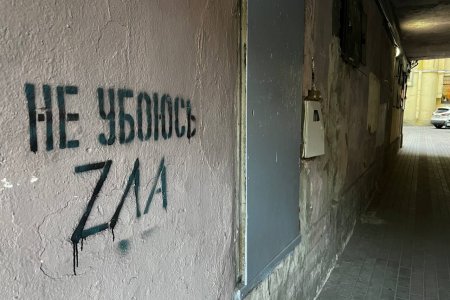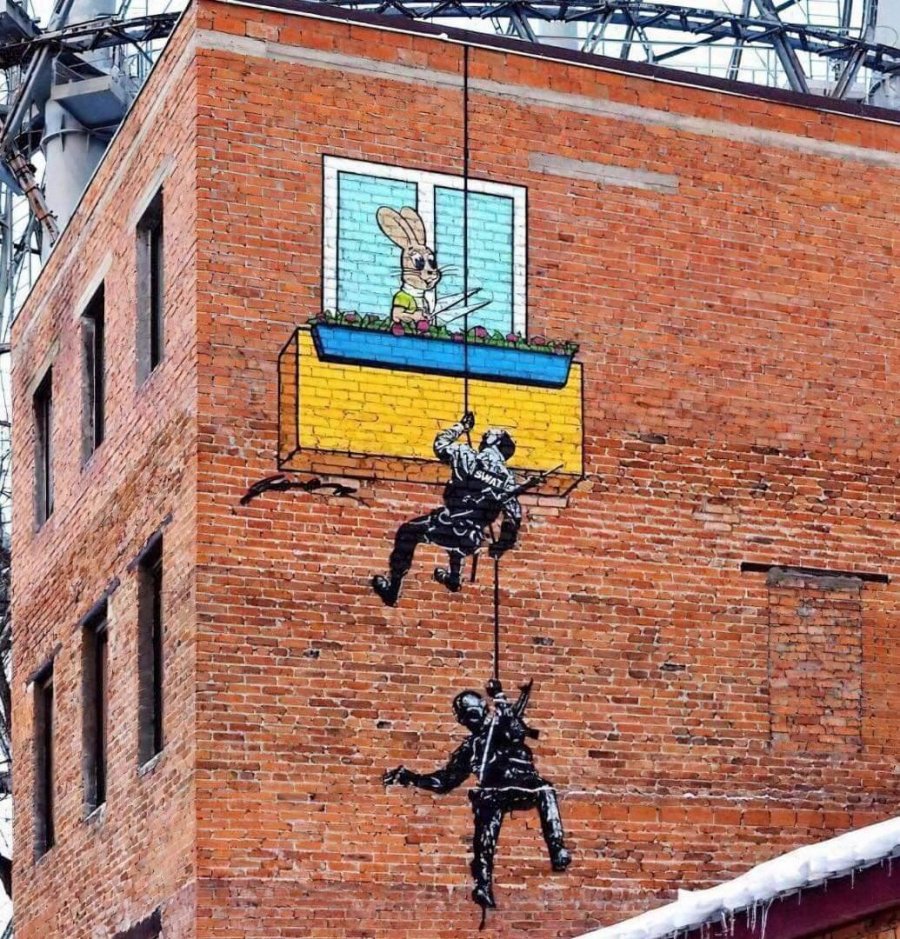
Recent opinion polls in Russia (for what they’re worth) show a majority in support of the war against Ukraine. Since 2012 draconian restrictions on free speech and public protests have been imposed in Russia, designating NGOs and media “foreign agents” or “undesirable organisations”.
After 24 February, these restrictions were further extended by laws threatening anti-war protestors with large fines or long terms of imprisonment. Nevertheless, for the fourth month in succession, individuals continued to protest, anonymously or in person, against Russia’s war in Ukraine.
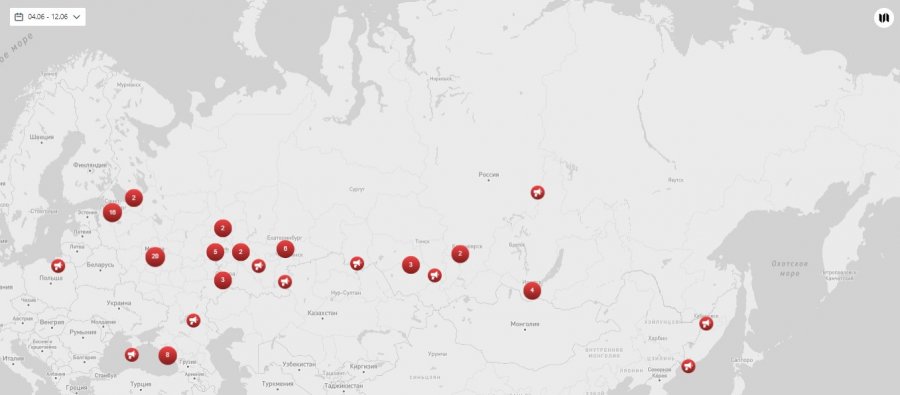
“RUSSIA DAY”
12 June was a public holiday in Russia. It marks the date in 1990 when the Russian Federation followed other Soviet republics (Lithuania, Estonia, Latvia, Georgia, Ukraine and Armenia) and declared its independence of the Soviet Union.
In Russian towns and cities filled with police and the pro-war symbol Z, activists used the occasion to hold anti-war protests. Many were arrested, and facial-recognition technology was used to detain over sixty men and women in the Moscow Metro. Hackers, street artists and musicians took part in the protests.
*
smotrim.ru is the main website for watching and listening to State-run TV channels and radio stations online – in May it attracted almost 41 million visits. On 12 June hackers broke into the site and all visitors could see was an appeal for an end to the war in Ukraine.
*
That day Dead Leg issued a new anti-war clip. This time the band dedicated it to Ukraine and its future victory in the present war: “Only the Almighty knows what will happen to us in the future. We just know that everything will go well for Ukraine.” In its previous anti-war song, released on Victory Day (9 May), lead singer Maxim Pokrovsky called on Russian troops to return home. After the track was broadcast, the authorities began to investigate Pokrovsky for “discrediting Russia’s armed forces”. (The law carries a sentence of up to ten years imprisonment.)
*
On 12 June, an enormous anti-war banner was draped on the embankment next to the Ministry of Defence in Moscow. “We’re not celebrating today”, it read. In a separate manifesto those behind the protest declared: “We shall soon mark our own Independence Day, a day of independence from imperial ambitions”. Several hours later law-enforcement officers detained Anton Malgazhdarov on suspicion of organising the protest. He was charged with two offences.
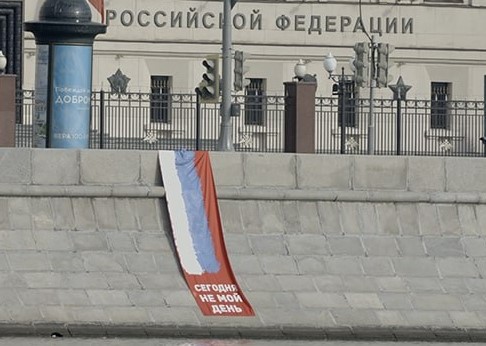
*
In St Petersburg two men were detained for holding a picket by the Bronze Horseman (Peter the Great on horseback). “Peter the Great opened a window on Europe. Is Putin nailing it shut?” read one placard: “Stop the war and recall the troops”. The other declared, “It’s better to fall in love when you’re young, not to fight and kill …” The men have been charged with discrediting the army.
*
As public festivities continued on 12 June in the very centre of Moscow, street musicians played the songs of Okeana Elza, including “One day when the war ends …” Nikita Vasilenko took this video of their performance.
*
On 12 June, Alexander Metz was detained outside the Oleg Tabakov Theatre in Moscow. He was protesting beneath a gigantic letter Z on the front of the building: “This is a disgrace!” read his placard, “There’s nothing to be proud about.”
*
At the Open Space gallery in Moscow an exhibition began of art by former and present inmates of Russia’s prisons, detention centres and special remand centres. Many of the works had an anti-war theme. “We did not choose this day by chance: our Russia is behind bars,” declared representatives of the gallery. The exhibits can be seen here.
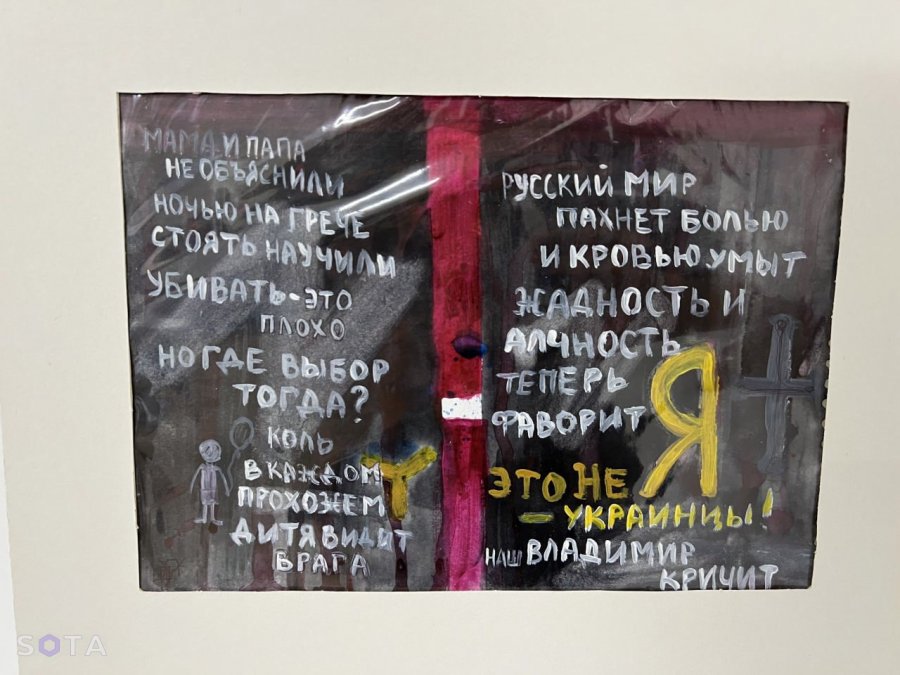
*
Well-known science journalist Asya Kazantseva was arrested in the Moscow Metro on 12 June after being spotted by facial-recognition technology. She gives lectures and has often written anti-war posts on Facebook. Asya is pregnant. The police detained her in the Metro for 2 ½ hours and demanded that she sign a statement that she had been given “a cautionary warning that people previously detained for civil offences should not use the Metro on Russia Day.”
*
More than sixty people were detained on Russia Day in Moscow after being identified by facial-recognition technology.
THE RUN-UP TO RUSSIA DAY
Hackers at work
On 8 June, the Kommersant FM station announced that it had been hacked. The mobile version would only play a loop of the Ukrainian national anthem, Dead Leg’s “Get back, Russia” and other Ukrainian songs.
On 10 June, the home page of the Bauman Institute’s website was hacked and would only display an anti-war message. It said, “This war was not started by Russians but by a crazed dictator. It is our civic duty to do all we can to end the war. Stop Putin! No to the war [#НетВойне]”.
Protests
On 8 June, activists hung an anti-war banner reading “Screw the War” on the facade of a building on Vosstaniya Street (St Petersburg). After watching CCTV recordings, the police arrested two young men and a woman. A court convicted the men of organising an event without prior agreement; it sentenced them to 5- and 10-days detention, respectively.
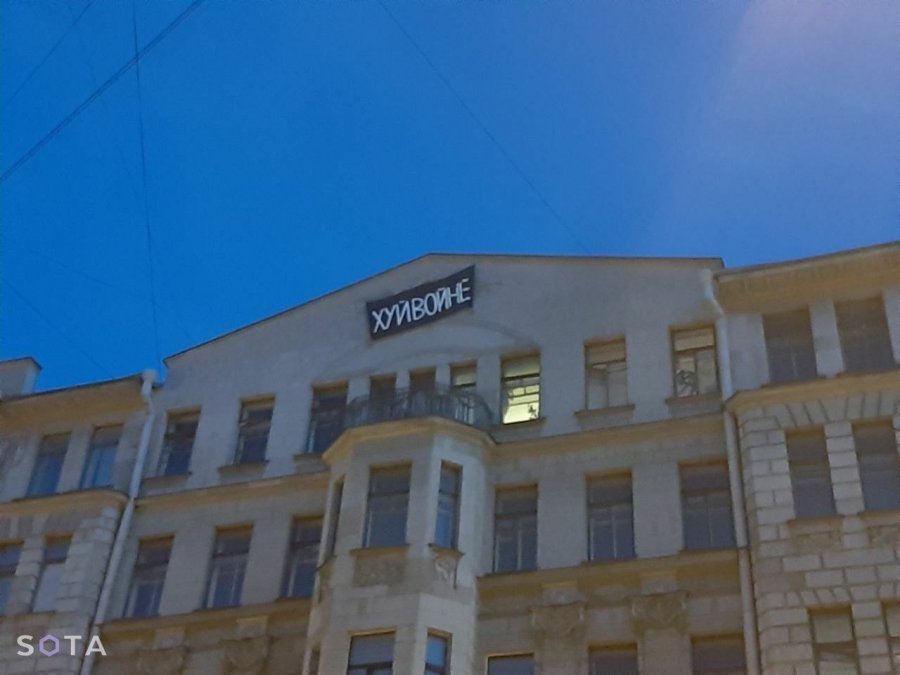
*
Meanwhile, the “Anti-War Sick List” channel offered instructions as to how to safely hang up anti-war banners. It recommended what materials to use, where to hang such banners, how to secure them in place, and how to observe health and safety rules.
*
During the past week it became known that when Russian mountaineer Yekaterina Lipka reached the summit of Everest on 24 May she unfurled a Ukrainian flag. Lipka posted a photo of herself and the flag on social media with a message, expressing her opposition to the war and Russia’s “ludicrous Z-patriots”:
“Smiling through my tears, I recalled that freezing wind. How my face turned black in seconds and everything inside me bubbled with pain … How my fingers, numb with cold, clutched that home-made flag and how I wished the war would end … and they would stop killing people. THAT THEY WOULD SIMPLY STOP KILLING PEOPLE.”
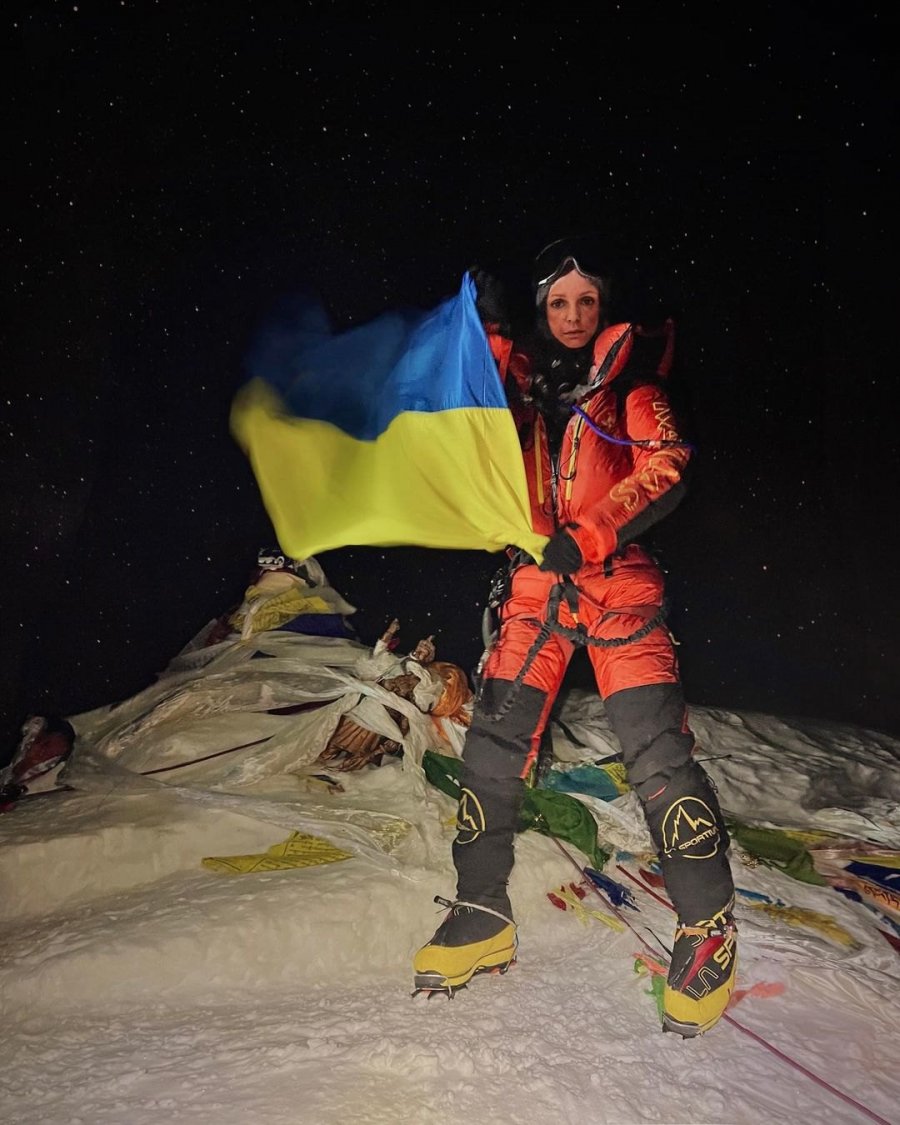
*
In Central Russia, in Kostroma there was a demonstration against the use of nuclear weapons. About a dozen people gathered on the city’s central square to protest against the threat of atomic war. The demonstration was organised by Vladimir Mikhailov, a deputy of the Kostroma Region Duma. A nuclear strike would be “irresponsible and contradicts [Russia’s] military doctrine,” said Mikhailov.
*
Maxim Sveshnikov was arrested in Moscow for holding a one-man picket. His placard read: “Bucha, Kramatorsk, Mariupol. Why? Russia’s army is a disgrace”. He was charged under the law about discrediting the country’s armed forces.
*
On Children’s Day, 1 June, artist Yelena Osipova protested with placards she had drawn herself. Director Katya Selenkina entered the Metro carrying a bloodstained baby doll. She travelled more than 20 stations, walking up and down the carriages loudly proclaiming, “Russian soldiers are killing children in Ukraine.”

Other Acts of Defiance and Dissent
Activists organised a #PlantsForPeace flash mob, with anti-war texts spelled out in flowers and plants: “Violets and Camellias, Araucarias and Anemones, plants from various countries and parts of the world – we call on people to stop a war that threatens the whole Earth. Russian forces must leave Ukraine immediately”.
*
Another flash mob on social media “goDDT (#даешьДДТ)” supported the band’s lead singer Yury Shevchuk: visitors posted “quotations from DDT songs, inserting the words ‘special operation’.” There was also a flyer on social media promoted under the hashtag “Shevchuk, Voice of the People” (#шевчукголоснарода).
*
The Green Ribbon organisation suggested a new way of protesting: the asphalt between the white stripes of pedestrian crossings should be painted green, the colour of Russia’s anti-war movement.
*
In another form of protest activists began cutting TV cables. Instructions and a video illustrating this protest were posted on Telegram channels.
*
And once again there were fires at enlistment and recruitment offices (voenkomat). This time the arson took place in the Russian Far East in Vladivostok, the 18th attack of its kind in recent time.
*
Igor Volubuyev, former vice-president of Gazprombank, joined the Free Russia Legion and is fighting on the side of Ukraine.
Graffiti and a War of Balconies
Near the Shukhovskaya TV and radio tower in Moscow, an enormous cartoon appeared on a wall. Depicting a famous scene from the popular Soviet-era cartoon “Just you wait, Hare!” it showed the hare on a yellow and blue balcony, cutting the rope on which soldiers were clambering up to catch him.
*
A senior lecturer at Moscow University, Mikhail Lobanov, who stood as a candidate in the State Duma elections, was arrested for an anti-war banner. The banner, “No to the War”, had hung from the balcony of his apartment since March but only recently was he secretly denounced to the authorities. Earlier the leaders of Russia’s Communists had demanded his expulsion from the Party for his anti-war stance.
*
At times banners hung from apartment balconies entered into debate. In response to a “For Russia” banner in one residential area another banner appeared: “All the other balconies are against [the war].”
HARASSMENT AND PERSECUTION
There was no let-up in the harassment and persecution of those who publicised their anti-war views. In the past week more “foreign agents” were named, punitive psychiatry was used against opponents of the war, a warrant was issued for one writer, concerts were cancelled, and a young man who requested an alternative to military service was punished. The property of journalists and activists was confiscated; and people were investigated or charged for describing clips shown on YouTube.
Writers and Musicians Opposed to the War
A federal arrest warrant was issued for writer Dmitry Glukhovsky who has spoken out against the war. On his channel he responded that he would not withdraw his opposition and repeated his demand that the war be brought to an end. In early June, investigators opened a case against Glukhovsky for voicing “false information about [Russian] soldiers”.
The following day a play based on Glukhovsky’s story “Text” was taken out of performance at Moscow’s Yermolova Theatre. “Yesterday it was still in the repertoire.Then they summoned all the actors behind the scenes and told them it would not be performed anymore,” commented Glukhovsky. “Well done, guys! A quick response to the news. Flash forward into the past.”
*
In the Urals, officials demanded that books by Glukhovsky and other authors be withdrawn from libraries in Chelyabinsk because they displayed an “ambiguous” attitude to the war (i.e., adopted a clear anti-war stance). Works by Dmitry Bykov, Dmitry Glukhovsky and Boris Akunin were taken off the shelves, supposedly because of a reader’s complaint.
*
Russia’s largest store of e-books, Litres, began to halt the sale of books by “foreign agents”. Oleg Kashin received a letter that his books would no longer be available: his Far Eastern Partisans was already unavailable at Litres.
*
The Stereo-Summer festival removed headline performers, the singer Manizhi and the Aloe Vera band, from its programme: both have spoken out against the war. An online campaign also unfolded against them in blogs where instructions were provided how to prevent their concerts. Subscribers were invited to write to the Ministry of Internal Affairs demanding that the performers be charged with “discrediting Russia’s armed forces”.
*
A concert by B2 at the end of the Petersburg International Economic Forum was also cancelled. The band refused to play beneath a banner with a pro-regime sloganat a previous concert.
*
Boris Grebenshchikov’s radio programme “Aerostat” was taken off the Nashe Radio station because of the famous musician’s anti-war statements. Before “Aerostat” was first broadcast there were calls on pro-war Telegram channels to protest in social media against the programme and to report it to law-enforcement.
Punitive Psychiatry
Charged with replacing price tags in supermarkets with anti-war statements (thereby “issuing false statements about the Russian army”), Sasha Skochilenko was sent for compulsory psychiatric assessment. Sasha’s mother said it was the investigator who insisted that her daughter be subjected to the three-week examination. Sasha is coeliac and the conditions in which she is being held did not take her dietary needs into account. Memorial has recognised Sasha as a political prisoner.
*
In Northwest Russia, the Petrozavodsk City Court in Karelia sent art teacher Irina Bystrova for psychiatric treatment. She was accused of justifying terrorism and discrediting Russia’s armed forces. Her persecution began in March after she published anti-war statements in social media. Her flat was searched and she was arrested, leaving her elderly mother on her own.
FINES, CONFISCATION AND IMPRISONMENT
Russia’s Investigative Committee began preparing a major criminal case against the activists of Moscow’s Protest Unlimited. Nikita Zaitsev, who owns the Protest Unlimited chat group, was summoned to appear before the Investigative Committee on 12 June. On receiving the summons, he left Russia immediately. In recent years activists of Protest Unlimitedhave participated in a variety of demonstrations and rallies, from election campaigns to anti-war protests.
*
The Basmanny district court in Moscow extended the detention of journalist Vladimir Kara-Murza, accused of circulating “false information about the Russian army”. The hearing took place under conditions of heightened fire risk, which was used as an excuse for not admitting some of the public and the press. Kara-Murza’s custody was extended until 12 August.
*
A court confiscated the property of journalists Andrei Soldatov, Ruslan Leviyev and Michael Naki. All three were charged under the law on circulating “false information about the Russian armed forces”. Agora attorney Pavel Chikov announced the measures on Alexander Plyushchev’s radio show.
*
The Ministry of Internal Affairs issued a warrant for the arrest of Alexei Ivanov, an activist from the Komi Republic (Northwest Russia). A criminal case was opened against him for insulting law-enforcement officers. Ivanov referred to the policemen who asked him to identify himself during an anti-war picket as “fascists”.
*
After the artist Bogdan Ziza painted the Eupatoria town administration offices in Crimea blue and yellow he was added to the list of extremists and terrorists. He has now been charged with preparing a terrorist act: supposedly he attempted to set the building on fire using a Molotov cocktail.
*
A court in Crimea found pensioner Valeria Goldenberg guilty of desecrating a grave and sentenced her to two years imprisonment in a penal colony. In April she poured a mixture of blood and faeces on the burial of a Russian serviceman who died on a ship off Berdyansk, a port in Ukraine.
*
In St Petersburg, a criminal case was brought against Father Ioann Kurmoyarov for spreading “false information” about the Russian army. In a video clip the priest said that Russian soldiers who died in Ukraine would not go to heaven. There was a search of his apartment during which recording equipment, two icons, a wooden cross and a cassock were confiscated. He faces up to ten years imprisonment.
*
An international arrest warrant was issued for Violetta Grudina, former coordinator of Alexei Navalny’s office in Murmansk (Northwest Russia). She is accused, among other things, of circulating “false information” about the Russian army because of her anti-war pronouncements.
*
Charges were brought against Nina Belyayeva, a deputy from Voronezh (Central Russia) for supporting terrorism. The reason was the young woman’s interview with a “foreign blogger” in which, supposedly, she called for a change of regime in Russia. Earlier she was also charged with circulating “false information” about Russia’s army.
*
In the south of Russia in Stavropol a conscript was fined 40,000 roubles for choosing alternative service to joining the army. He explained that his mother had given birth to him after escaping with difficulty from Grozny, which was being shelled during the second Chechen War (1999-2005); he did not want to risk his own life.
*
A woman was fined in Tatarstan (Volga Federal District) for damaging public property. She had written anti-war slogans on the floor of the lift. Earlier she was accused of discrediting the army and fined 30,000 roubles for the very same texts.
*
After being denounced to the authorities, Vladimir Pavlenko of Sochi in southern Russia was fined 30,000 roubles under the law against discrediting the Russian army. The denunciation claimed that Pavlenko had declared in public that “Russian soldiers are looters and everything they have stolen is being sent back to Russia via Belarus”.
*
For statements on the Viber messaging platform and conversations with his colleagues in Krasnodar (South Russia), Ukrainian-born Andrei Novichenko was fined 30,000 roubles. A 61-year-old inhabitant of Voronezh (Central Russia) was fined 15,000 roubles for describing in a public institution the contents of a clip broadcast on the internet.
*
Colleagues complained to the police about their fellow employee from Kogalym who, according to the official record, “vehemently asserted his view of the Russian armed forces. He insulted and criticised the actions of our soldiers.” A court in the Khanty-Mansiisk Autonomous Okrug (north Urals) fined the man 30,000 roubles.
*
Ivan Golub, an activist from Saratov (Volga Federal District) was charged with “discrediting the army” for using the peace sign as his avatar on the Vkontakte network. During a search, his mobile telephone and notebook were confiscated. Golub said that the charges were drawn up beforehand and the police who searched his flat asked if the swastika was not a symbol of the peace movement.
*
In the Kaliningrad Region (Northwest Russia) activist Anna Boikova was sentenced to 50 hours compulsory work for announcing on a private Telegram channel how feminists could protest effectively during the “pro-war” Victory Day (9 May). Boikova was also charged with discrediting the Russian army.
*
The central district court in Tver (Central Russia) fined activist Yelena Muravyova 15,000 roubles for holding a placard that read “Je suis Mariupol” during her one-woman picket. The court considered she was discrediting the Russian army.
*
An inhabitant of Cherkessk (North Caucasus) was convicted of anti-social behaviour and sentenced to seven days detention for requesting a Ukrainian song in a café. A group of FSB officers and staff from the Centre for Combatting Extremism were sitting nearby. He was taken away in car, tortured and beaten, he said, and called “an agent of Zelensky and a Ukro-fascist”.
*
Mikhail Gusev, an activist from Ivanovo (Central Russia), emigrated to Belgrade after being harassed for holding a placard that read, “*** *****” (i.e., “Screw the War”). Later, he was fined 45,000 roubles for discrediting the Russian army. Each asterisk cost him 5,625 roubles.
*
The authorities forced Pinchas Goldschmidt, Chief Rabbi of Moscow, to leave Russia for refusing to support the war against Ukraine. According to media reports, Goldschmidt left Russia two weeks after the war began. The authorities tried to pressure leaders of the Jewish community not to re-elect Goldschmidt; he has been chief rabbi for the past 30 years.
*
The director of the open city college in Novosibirsk (central Siberia) resigned after refusing to “have a chat and put college students right” after they were detained at anti-war demonstrations.
*
A policeman stopped a Moscow resident carrying bunches of yellow and blue flowers. He told her they were “of an undesirable colour” and queried why she had chosen them. The young woman pointed to her New Balance trainers which carried a logo resembling the letter Z. “But my trainers bear the correct symbol. Can I go now?” The policeman fell silent and released her.
Blocking and Banning of Websites
At the request of the Russian Prosecutor General’s Office, the media oversight agency (Roskomnadzor) blocked dozens more sites on 4 and 5 June.
These included, for the first time, a mirror site of Grati, the Ukrainian media project, and the mirror site of Forklog, an internet publication about crypto-currencies and block-chains. Also affected was pravdamail.com – a site that offered to email Russian citizens information about the war in Ukraine.
*
With the help of Roskomnadzor, the Prosecutor General’s Office also blocked Radio Liberty’s new mirror projects in the Volga District, the Crimea, Northwest Russia, the Caucasus and Tatarstan (Idel.Realii, Krym.Realii, Sever.Realii, Kavkaz.Realii, and Azatliq Radiosi, in the Tatar language) and its Faktograph fact-checking website.
*
The media oversight agency blocked the Ukrainian President’s Global24 site which raises funds for Ukraine, the news website “Fleet – 2017”, the “Horrors of War in Ukraine 2022” site and other Ukrainian media.
At the request of the Prosecutor General’s Office, the Vkontakte network blocked the page of the anti-war activist Nikolai Shipilov. On 23 May he posted his anti-war appeal to Igor Krasnov, Russia’s Prosecutor General, concerning the illegality of documents about cooperation between the Russian Federation and the Don and Luhansk “People’s Republics”.
A court in Kaliningrad (Northwest Russia) ordered Pskov website 60.ru to delete lists of Russian soldiers who had died in Ukraine. The site’s editors gathered the information from open sources, but the court ruled that such information “was a State secret and its publication could lead to criminal prosecution”.
A court fined Radio Liberty 20 million roubles for refusing to take down reports about the war in Ukraine which had been declared “false information”.
Roskomnadzor demanded that Podcast.ru should block an episode of the Dokha student magazine’s anti-war podcast.
QUIET PROTESTS
The streets of Petersburg say, “We’re stronger than evil” in white, blue and white –https://t.me/nedimonspbinf/15515
“No to the War” on walls and bus stops – https://t.me/nedimonspbinf/15516; https://t.me/nedimonspbinf/15521.
“We cannot remain silent. We are many and we are opposed”, “The geese call, ‘To the Hague, to the Hague!’ “ and others protests from Tambov, Krasnodar and Moscow –https://t.me/wakeup_russia/1082, https://t.me/wakeup_russia/1089, https://t.me/wakeup_russia/1176.
“No to Russian aggression”, “I love Peace”, “3* + 5*” [Screw the War] and many other examples of street-art in Siberia (Novosibirsk, Irkutsk), Moscow, the Moscow Region (Zelenograd), St Petersburg, the Volga Federal District (Perm, Kazan), and Rostov-on-Don (SouthRussia) – https://t.me/vesna_democrat/2054, https://t.me/vesna_democrat/2109
Gollum with an anti-war placard on the walls of Higher School of Economics (Moscow) – https://twitter.com/killinkel/status/1534133129652621313, s=20&t=hmYaBugCzxACqJNeER1c0g.
From the Far East (Khabarovsk, Vladivostok), Moscow andVyborg (Northwest Russia) – https://t.me/vesna_democrat/2186.
From Moscow, the Moscow Region (Zelenograd), South Russia (Volzhsky, Krasnodar), the Urals (Yekaterinburg) and Siberia (Omsk) – https://t.me/vesna_democrat/2210–,https://t.me/vesna_democrat/2231, https://t.me/vesna_democrat/2249.
Anti-war verse, stickers, and texts on drainpipes, walls, benches, and banknotes in Moscow, St Petersburg, the Volga District (Kazan, Samara) and the Urals (Kartaly, Yekaterinburg) – https://t.me/vesna_democrat/2272.
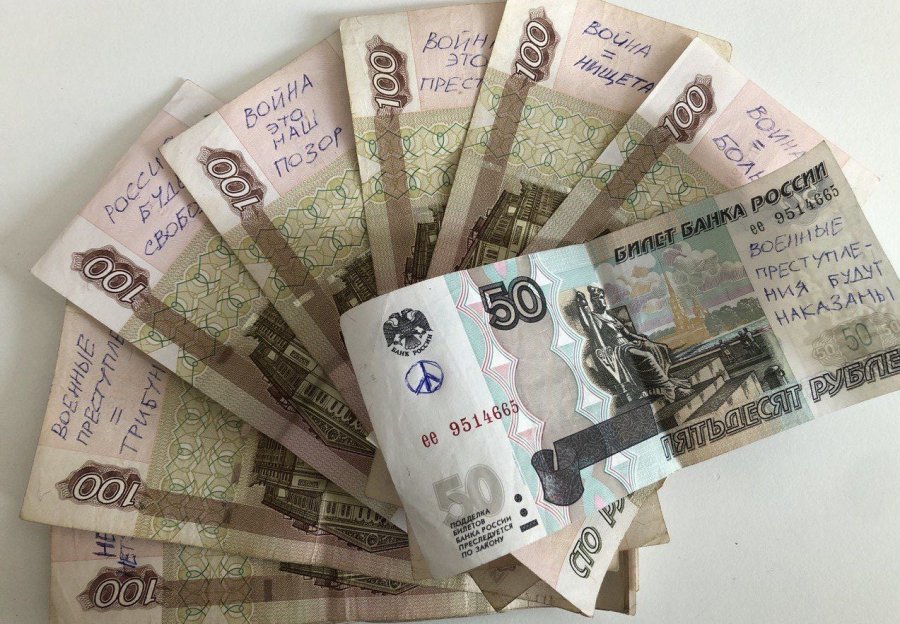
Anti-war graffiti and stickers in Krasnodar – https://t.me/wakeup_russia/1169–https://t.me/wakeup_russia/1221.
The “Partisans of the Sun” left a box full of anti-war postcards, stickers and flyers in the centre of Moscow – https://t.me/wakeup_russia/1067.
All these visual protests are recorded, week by week, on Vesna’s map of protests – https://remap-ru.com/.
The review was prepared by Memorial volunteers on the basis of the the following sources: ОВД-инфо, Холод, Видимый протест and others. Translation by John Crowfoot.
